Volodymyr Zelensky’s Concerns as Donald Trump Aims for a Return to the White House: Anxiety, Fear, Evasion, and
The recent speculation surrounding former U.S. President Donald Trump’s potential return to power has raised concern for many world leaders, and Ukrainian President Volodymyr Zelensky is among them. As Trump remains vocal about his views on U.S. foreign policy and economic priorities, Zelensky faces the possible shift in America’s support for Ukraine, which has been critical in their ongoing conflict with Russia.
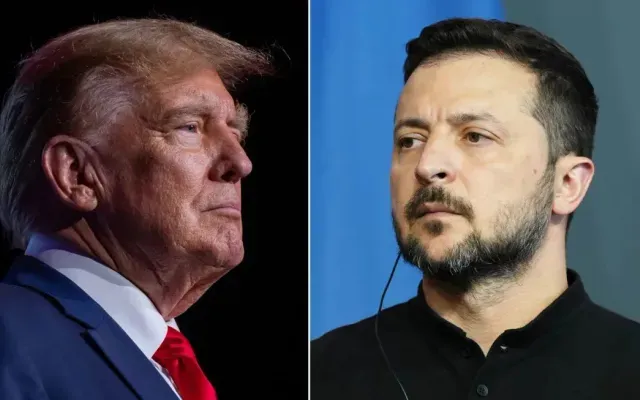
During his previous presidency, Trump often emphasized “America First,” a policy centered on prioritizing domestic economic strength and reducing America’s international engagements. Trump has made his stance clear on foreign aid, suggesting that the U.S. should not be involved in what he considers “endless conflicts” abroad. He’s indicated that, if re-elected, he could potentially withdraw or reduce support for Ukraine, a position that could have far-reaching consequences for Zelensky’s administration and Ukraine’s national security.
For Zelensky, the stakes are high. Over the past several years, Ukraine has relied on American military and economic assistance to counter Russia’s advances. Losing U.S. support would weaken Ukraine’s position significantly, and Zelensky is acutely aware of this. “We understand the risks involved,” Zelensky commented recently, alluding to a potential shift in U.S. support should Trump resume office. This uncertainty has intensified his efforts to rally other NATO members and European allies for sustained backing.
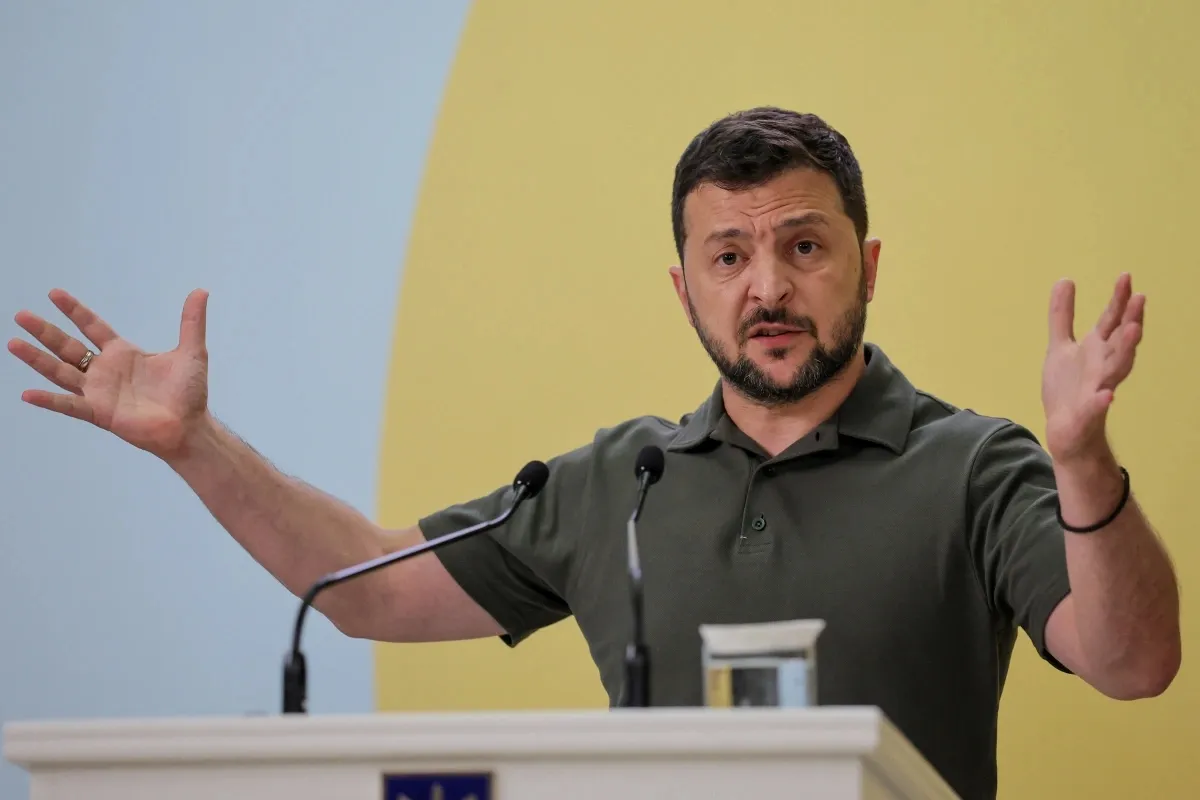
During his campaign, Trump has boldly claimed that he could end the Ukraine-Russia conflict “within 24 hours” if given the chance, though he has provided few details on how this would be achieved. The statement, intended to appeal to his base, who desire an end to U.S. involvement in overseas conflicts, has raised alarms within the Ukrainian government. Zelensky has publicly expressed skepticism about this proposal, even inviting Trump to Ukraine to assess the situation on the ground.
Zelensky’s invitation, however, was met with a firm response from Trump, who declined to visit Ukraine, citing potential conflicts of interest. For Zelensky, this refusal is more than a diplomatic brush-off; it highlights the former president’s reluctance to engage directly with Ukraine’s plight and deepens concerns that Trump’s peace proposal may not align with Ukraine’s goals of sovereignty and territorial integrity.
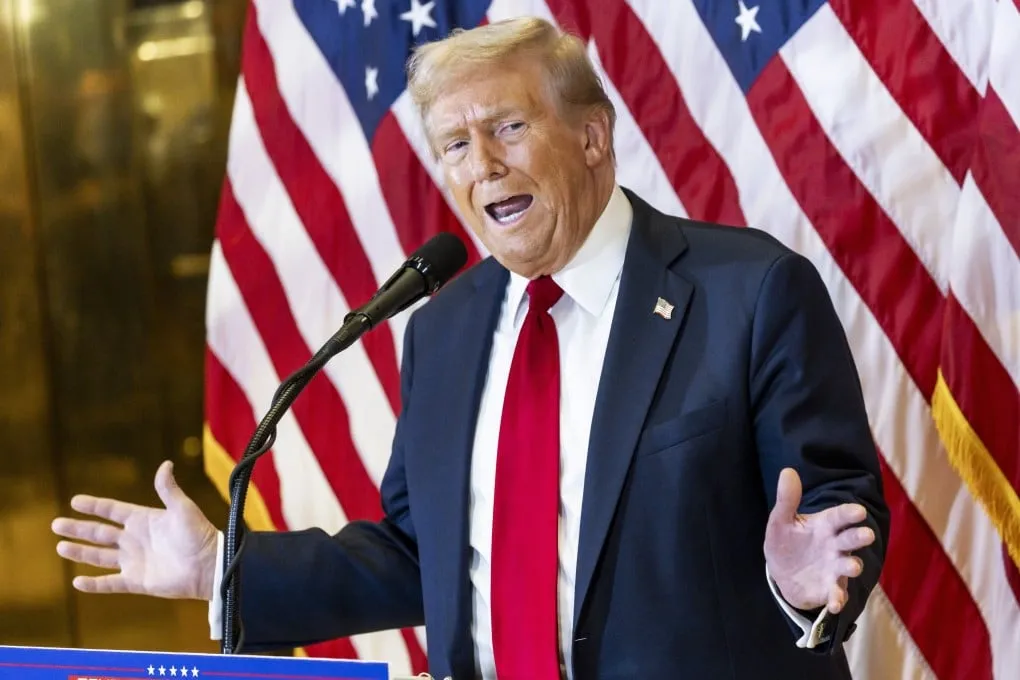
Zelensky has also voiced concerns that any retreat by the U.S. from Ukraine could damage America’s standing on the global stage. Zelensky argued that allowing Russia to prevail in the conflict would embolden other authoritarian regimes and signal that the U.S. is willing to negotiate its principles for peace, a position he believes could destabilize the international order. “If the U.S. sacrifices Ukraine for a peace deal, it risks losing credibility and influence worldwide,” Zelensky stated. He warns that an end to U.S. support could prompt other allies to reconsider their commitment to Ukraine as well.
Analysts share Zelensky’s concerns, noting that a Trump-led U.S. administration might push Ukraine to make territorial concessions for the sake of peace, a scenario that could permanently alter the country’s borders and sovereignty. Such concessions could undermine the morale of the Ukrainian people and weaken NATO’s united front, sending a troubling message to Moscow and other nations observing the conflict.
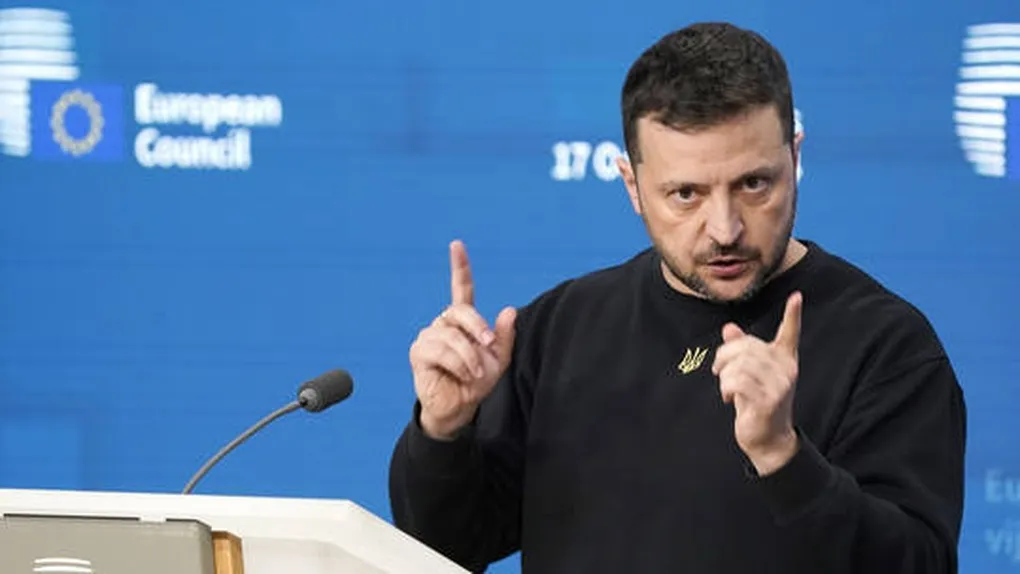
In light of these uncertainties, Zelensky has intensified his efforts to strengthen Ukraine’s alliances across Europe and within NATO. While NATO members have stood firmly with Ukraine, Zelensky’s recent outreach to individual leaders shows an awareness that U.S. policy could shift dramatically under a new Trump administration. Even as he continues to rely on U.S. military aid, Zelensky has been exploring ways to diversify Ukraine’s support base, emphasizing self-sufficiency and rallying domestic support.
He has also been appealing to the moral and strategic imperatives of European nations, warning that a destabilized Ukraine could ultimately lead to instability across Eastern Europe and beyond. For Zelensky, fostering relationships beyond Washington is not just strategic; it’s essential for survival. If U.S. support wanes, Ukraine’s dependence on European allies will grow.
As Trump’s rhetoric on Ukraine raises questions about future U.S. foreign policy, the potential impact on Ukraine is significant. Trump’s stance could signal a departure from the bipartisan consensus on Ukraine that has existed since the conflict began. While his supporters favor a reduction in U.S. involvement, critics argue that the former president’s approach undermines the broader goal of containing Russian aggression.
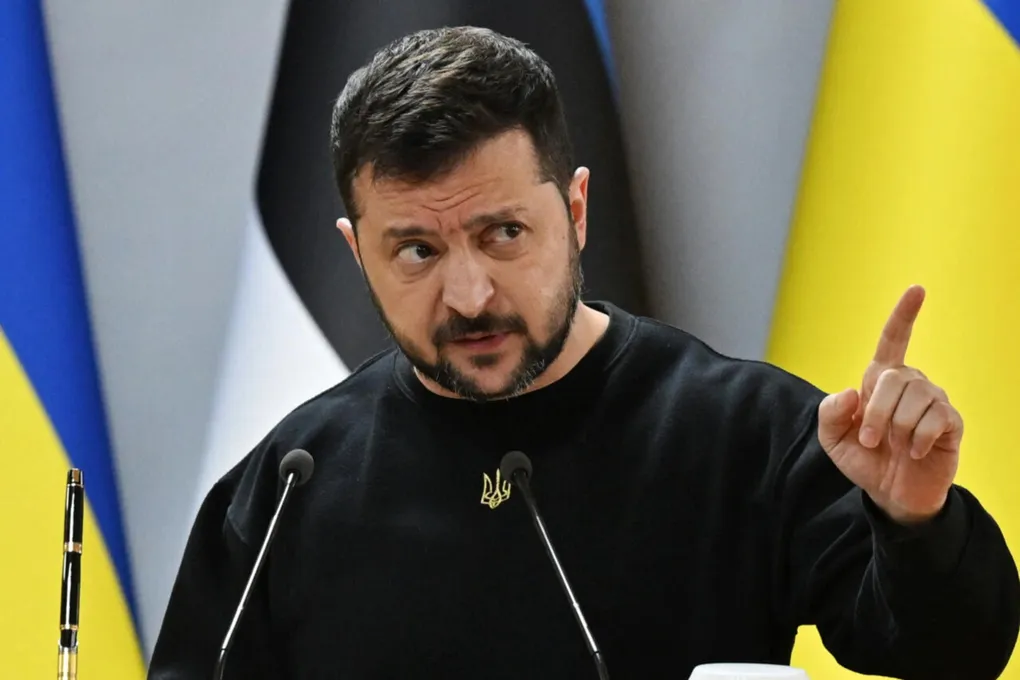
Zelensky’s response to these developments reflects his pragmatism and commitment to Ukraine’s independence, but it also highlights the unpredictable nature of international alliances. For the Ukrainian leader, maintaining strong ties with the United States and securing continued aid remain top priorities. However, he is preparing for the possibility that a new administration could change the dynamics of Ukraine’s struggle for sovereignty.
The prospect of Trump’s return to the White House poses serious questions for Ukraine’s future, particularly as it seeks to maintain a strong alliance with the United States. For now, Zelensky is carefully navigating the complexities of international support, underscoring the importance of Ukraine’s independence while actively seeking assurances from NATO and European partners.
In the face of uncertain U.S. policies, Ukraine’s strategy appears to be clear: remain resilient, seek diverse partnerships, and prepare for all eventualities. Whether Trump’s return would truly spell the end of American support for Ukraine remains to be seen, but for Zelensky, the message is clear – Ukraine’s independence must be preserved, with or without America’s backing.
